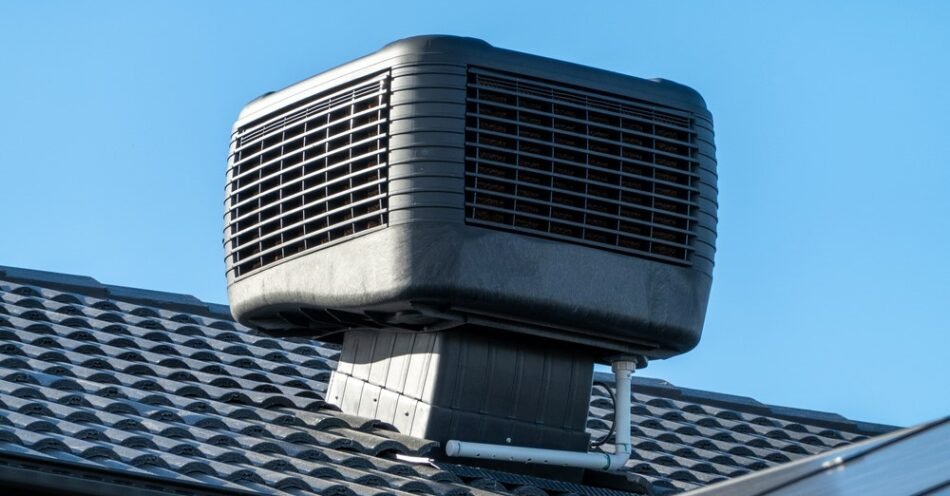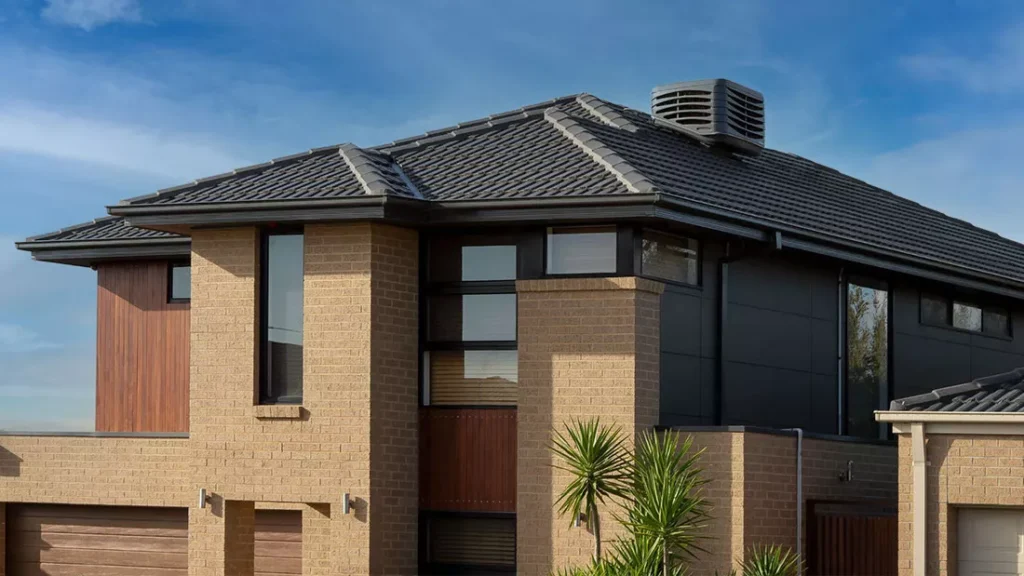In the sphere of indoor cooling, two primary types have long held the spotlight: Traditional Air Conditioning and Evaporative Cooling. More recently, however, a shift seems to be occurring, with Evaporative Cooling gaining considerable market traction. This trend doesn’t emerge out of the blue; it’s driven by the unique benefits and efficiencies that Evaporative Cooling brings to the table. This article aims to shed light on these advantages in a head-to-head comparison with traditional air conditioning. By unravelling the benefits, we aim to enlighten the reader about the potential cost savings, health advantages, and environmental benefits of choosing Evaporative Cooling over Traditional Air Conditioning.
Understanding the Core Mechanism: Evaporative Cooling versus Traditional Air Conditioning
Traditional Air Conditioning operates by moving heat from within your premises to the outside. It cools indoor air using a refrigeration cycle, expelling the produced heat outdoors. On the other hand, Evaporative Cooling works on the principle of evaporation. It uses a fan to draw hot, dry air inside your home, which then passes over water-soaked pads, cooling by evaporation.
The operational differences between Traditional Air Conditioning and Evaporative Cooling significantly influence their pros and cons. For instance, Traditional Air Conditioning performs best in humid areas while Evaporative Cooling thrives in dry, hot climates, making it an ideal option in areas of low humidity.
Health Advantages of Evaporative Cooling
Discussing health considerations, Evaporative Cooling has a significantly positive impact on indoor air quality. Often, Traditional Air Conditioning can lead to overly dry indoor environments, which can instigate respiratory and skin issues. Evaporative Cooling, however, maintains a comfortable humidity level, owing to its natural cooling process.
Furthermore, the air circulated by Evaporative Coolers is fresher and less stale as compared to air conditioners, since it actively exchanges indoor and outdoor air. According to health experts, this continual replenishment of fresh air can help prevent respiratory issues and contribute to overall well-being.
Economic Implications: Evaporative Cooling as a Cost-Effective Alternative
From an economic viewpoint, several factors distinguish Evaporative Cooling as a cost-effective alternative. Firstly, in terms of installation costs, Evaporative Coolers typically are less expensive than traditional air conditioners.
Moreover, Evaporative Cooling systems consume significantly less energy, resulting in lower electricity bills. Maintenance and repair costs are also generally lower for Evaporative Coolers as they have fewer moving parts, meaning fewer things can break down. Over-time, these economic advantages can translate into substantial cost savings for homeowners and business owners alike.

Environment-Friendly Aspects of Evaporative Cooling
Besides the economical implications, Evaporative Cooling holds an edge over Traditional Air Conditioning in terms of environmental sustainability. Evaporative Coolers have a lower carbon footprint, primarily because they consume less energy.
Equally importantly, Evaporative Cooling systems utilise water as a refrigerant, making them much more eco-friendly compared to the refrigerants used in traditional air conditioning. The adoption of Evaporative Cooling can also contribute to reducing greenhouse gas emissions, thereby aiding in environmental preservation. Several studies provide solid backing to these environmental benefits, reinforcing the essential role Evaporative Cooling can play in fostering an eco-friendly future.
Adoption and User-Friendly Attributes of Evaporative Cooling
In terms of practicality and ease of use, it’s worth contrasting evaporative and refrigerated cooling options. The design of Evaporative Cooling systems is fairly straightforward, making them simple to understand and operate. Installation is likewise uncomplicated and can usually be handled without professional assistance.
When it comes to noise pollution, Evaporative Coolers are typically quieter than traditional air conditioners, providing a more peaceful indoor environment. It’s no surprise that users often lean towards Evaporative Cooling, owing to these user-friendly attributes, as evidenced by several case-studies.
Conclusion
In conclusion, when considering overall health benefits, economic advantages, environmental sustainability, and user-friendliness, Evaporative Cooling holds a compelling case over Traditional Air Conditioning. While both systems have their unique strengths and weaknesses, understanding these diverse aspects can help homeowners and businesses make more informed decisions. Through this detailed analysis, we hope to foster awareness and inspire considered choices in the realm of indoor cooling.






